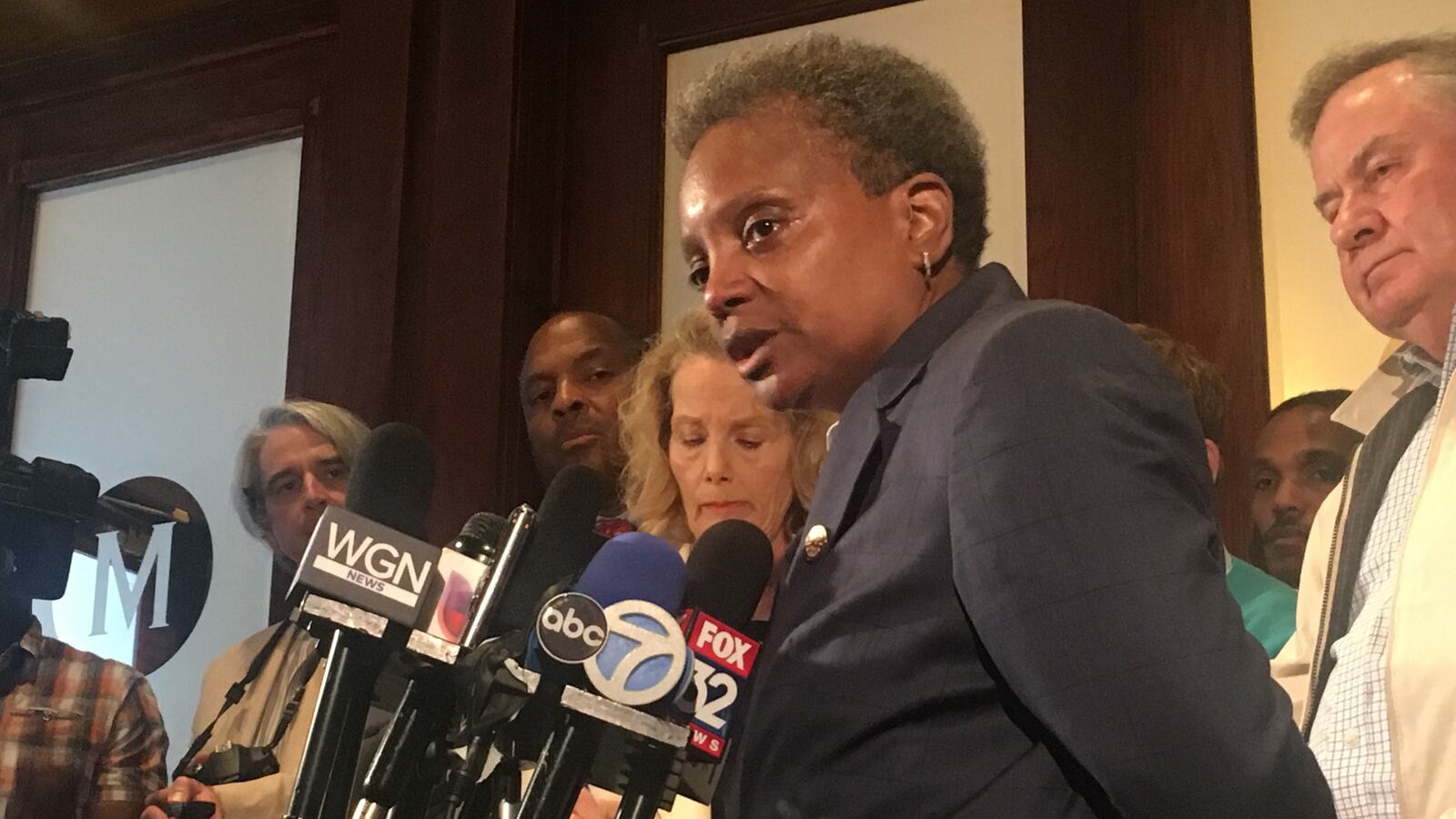New Chicago Mayor Lori Lightfoot is mum about whom she’ll appoint to the Chicago Board of Education, but on Tuesday she dropped some hints to a gathering of business and civic leaders.
“I feel very good about the board that we’ve put together,” Lightfoot said during an afternoon speech hosted by the City Club of Chicago. Her pick for board president is a man, she added, who “won’t need much introduction.”
The mayor was responding to a question posed by an Erie Charter Schools representative who asked whether her board would include someone “who represents the interests of charter schools.” Lightfoot, who proposed a freeze on charter school expansion as a candidate, never explicitly answered the question Tuesday.
Related: New mayor Lori Lightfoot moves to disband Chicago’s school board
She did say that her board picks included education experts and people with experience as school district parents, teachers and administrators. She emphasized the importance of having a board that focuses on investing in neighborhood schools, and prioritizes equity and inclusion at the district.
Lightfoot said that Chicago Public Schools was in the process of vetting the prospective school board members, and that their names would be made public soon, but offered no timeline.
She’s replacing the board on an interim basis in lieu of an elected school board, a measure she supported on the campaign trail that requires changing state law. Yet Lightfoot doesn’t support a current proposal to establish a school board with 20 members and voting districts because she fears it would be unwieldy.
At the City Club event — after a holiday weekend where at least 42 people were shot and five killed in Chicago — Lightfoot said she was committed to making neighborhoods safer. She also mentioned putting city finances in order, creating jobs, repairing blighted commercial corridors, and investing in neighborhood schools, especially on the South and West Sides where black and brown communities bear the brunt of gun violence.
She said addressing those problems, which she characterized as deep-rooted symptoms of racial inequity, would help stem the tide of residents leaving Chicago and the school district.

